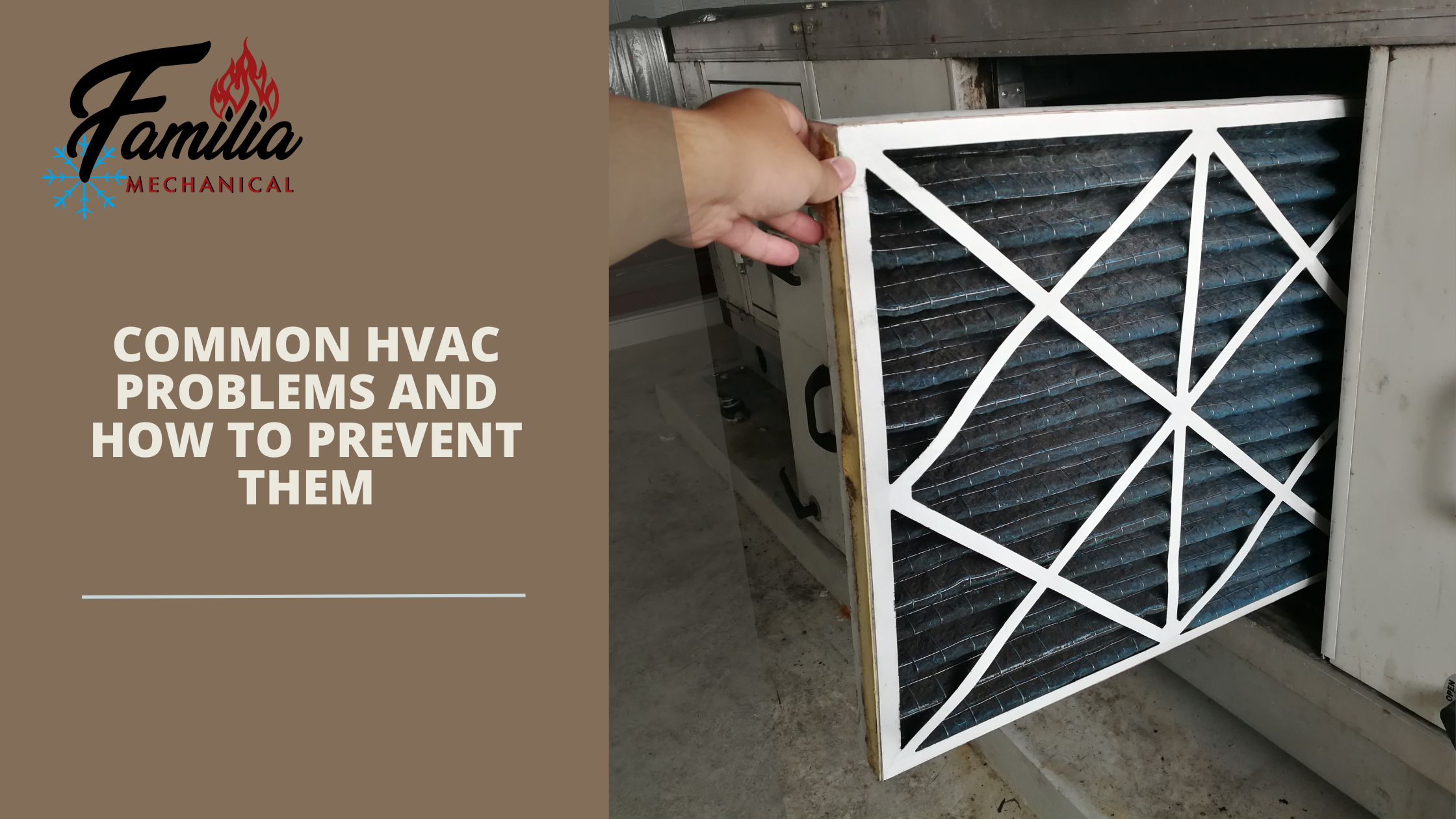Common HVAC Problems and How to Prevent Them
Your HVAC (Heating, Ventilation, and Air Conditioning) system plays a crucial role in maintaining a comfortable and healthy indoor environment. However, like any mechanical system, HVAC systems can encounter problems over time. In this blog, we will explore some common HVAC problems and provide tips on how to prevent them, ensuring your system operates efficiently and extends its lifespan.
1. Dirty or Clogged Air Filters
One of the most common HVAC problems is dirty or clogged air filters. When filters become clogged with dust and debris, they restrict airflow, causing your system to work harder and less efficiently.
Prevention Tip: Replace or clean your air filters regularly, typically every 1-3 months, depending on usage. This simple task improves air quality and prevents strain on your HVAC system.
2. Inadequate Maintenance
Neglecting regular HVAC maintenance can lead to various issues, including reduced efficiency and costly repairs. Over time, components wear out, and minor problems can escalate into major ones.
Prevention Tip: Schedule annual professional maintenance checks for your HVAC system. This can catch issues early, optimize performance, and extend the lifespan of your equipment.
3. Refrigerant Leaks
Refrigerant leaks in your air conditioner or heat pump can result in reduced cooling or heating capacity. Leaks can also harm the environment and increase energy bills.
Prevention Tip: Regularly check for signs of refrigerant leaks, such as reduced cooling or ice buildup on the coils. If you suspect a leak, contact a qualified technician to repair it promptly.
4. Electrical Issues
HVAC systems rely on electrical components, and problems with wiring, capacitors, or relays can disrupt their operation.
Prevention Tip: Ensure that electrical connections are secure and free from corrosion. If you notice any irregularities, contact an HVAC technician for inspection and repairs.
5. Uneven Heating or Cooling
Uneven temperature distribution in your home can be caused by various factors, including improper system sizing, blocked vents, or insulation issues.
Prevention Tip: Make sure all vents are open and unobstructed, and consider upgrading insulation in problem areas to promote even heating or cooling.
6. Thermostat Problems
A malfunctioning thermostat can lead to temperature inaccuracies and an inefficient HVAC system.
Prevention Tip: Test your thermostat's accuracy and replace batteries regularly. Consider upgrading to a programmable or smart thermostat for better control and energy savings.
7. Ductwork Issues
Leaky or poorly insulated ducts can waste energy and reduce the effectiveness of your HVAC system.
Prevention Tip: Have your ducts inspected and sealed by a professional. Properly sealed and insulated ducts can significantly improve system efficiency.
Preventing common HVAC problems is essential for maintaining a comfortable and cost-effective indoor environment. Regular maintenance, attention to warning signs, and proactive steps can help you avoid costly repairs and ensure your HVAC system operates smoothly. By following these tips, you'll enjoy better comfort, improved air quality, and lower energy bills while extending the life of your HVAC system.

